Issue 38 : 8 September 2019
Talofa Lava, Kia Orana, Malo E Leilei, Tena Koutou, Hello ...
... and welcome to the latest issue of “For The Love Of The Game”, the official e-zine of the New Zealand Amateur Sport Association Inc. We hope you enjoy reading the articles below.
If you have any feedback on this issue, ideas for future articles, or would like to contact the Editor, please click here. And, you are invited to forward the e-zine to others you know, who may be interested in reading it.
If you are interested in applying for membership of the Association, please click here.
Members of Parliament Meet With Association Board ...
Chris Bishop (National), Paul Eagle (Labour), Brett Hudson (National), Greg O’Connor (Labour), Nicola Willis (National), and Meka Whaitiri (Labour) were guests of the Association’s Board at a luncheon hosted by Forsyth Barr Limited in Wellington this week.
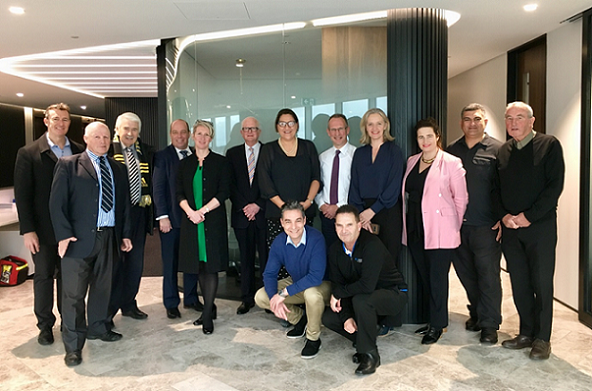
The meeting provided an opportunity for the Association to introduce its goals to the invited parliamentarians and seek their support for the Association around its strategic pillars of "community engagement", "thought leadership" and "amateur advocacy".
List Member of Parliament for Wellington Central, Nicola Willis said, "I enjoyed hearing views from those representing the grassroots of sport in New Zealand. We are keen to see more people, particularly young New Zealanders, participating in sport and getting the benefits that come with that, both physically and mentally. We welcome the opportunity to discuss ideas for making that possible." The Association appreciates the cross-party support for its goals.
2019 National Amateur Club Survey Commences On 23 September ...
The 2019 survey will be delivered via e-Mail to sporting clubs on Monday, 23 September and will be open for response until Monday, 7 October. This year, the survey offers a $500 prize-draw for respondents, being a credit for the purchase of sports clothing from Dynasty Sport.

Kindly supported by Pinnacle Corporation and Dynasty Sport, the 2019 survey will be administered by the Association's technology partner, Expert Services, (www.expert.services). Expert Services is a well-established, full-service, website design and development company situated in Wellington. The Association appreciates the support of all its sponsors.
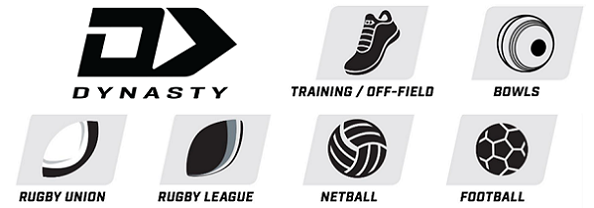
National Sporting Organisations Join Forces ...
Earlier this week, the Chief Executives of Hockey New Zealand, Netball New Zealand, New Zealand Cricket, New Zealand Football, New Zealand Rugby and Sport New Zealand signed a statement of intent, listing steps they will take to change the way young people experience sport. The Association welcomes this fresh approach as a positive step toward recalibrating the energy and resources of their sports toward the health and well-being of local communities.

The challenge for these Codes will be to effectively communicate with their community stakeholders, in encouraging and promoting the actions which will create the outcomes desired. The Association recognises that parents, clubs and schools are those that provide the bottom-up resources, enthusiasm and infrastructure in promoting and delivering sport (largely on a voluntary basis) for young people in the community.
Club Connects With Community To Create Sporting Opportunity ...
Petone RFC was founded in 1885 and has always prided its role in representing its diverse and ever-changing community. Two senior players, Jack Ross and Carne Green, have recently successfully energised the Club and the wider Petone community to fundraise the considerable sum required for the Club to participate in the “Waikiki 10s” in Hawaii, next month.
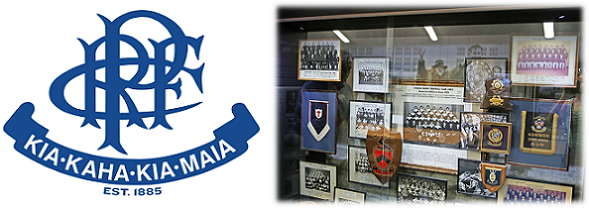
Over a period of four months, following an initial $500 payment from all intending to be take part in the Tournament, Ross and Green have organised raffles, working-bees, golf tournaments and other activities to leap over the necessary financial hurdle to take part. In doing so, they have renewed excitement for their Club and their game in the community.
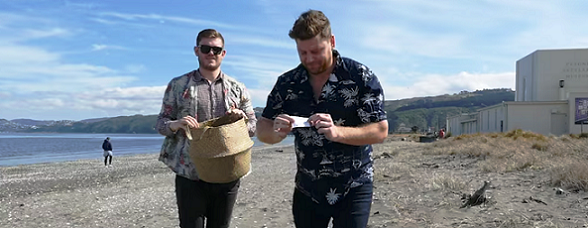
(Not quite Waikiki, Petone beach served as the venue for drawing the Tour raffle winner)
Local JP and community advocate Gavin Murphy is a member of the team supporting the Tour and observes “sport is such a positive contributor to healthy communities, teaching resilience, teamwork, as well as providing social connections and demonstrating the discipline required to be successful.” Tour supporter Dion Ross also notes, “community sport is something we can all be part of; if you get the chance, get involved.”
62% Experience Mental Health Problem Following Retirement ...
The Professional Players Federation (PPF) is the national organisation for professional player associations across all sporting codes in the United Kingdom. There are over 17,500 professional sportsmen and women in Britain with the PPF dedicated to promoting, protecting and developing the collective interests of these players.
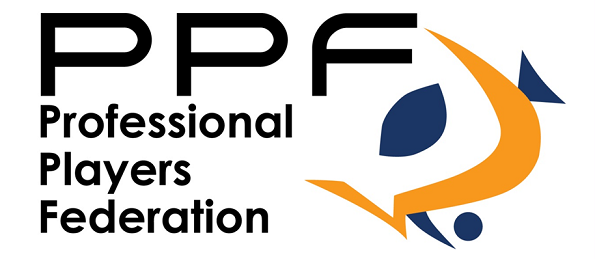
According to a PPF survey undertaken last year, more than half of former professional sportspeople have had concerns about their mental or emotional well-being since retiring. This was also recently highlighted by a United Kingdom Rugby Players Association survey which noted that 62% experienced some kind of mental health problem within two years of retiring. Over half did not feel in control of their lives two years after they retired and 50% have reported financial difficulties in the first five years after retiring.
The issues of players needing to re-determine their “identity” post-retirement is seen as a key factor underpinning many of these issues, with many unable to relate to themselves or society outside of their former sporting persona.

Both of these surveys highlight the importance of ensuring youth (who are most often the target of professional sport contracts) have the opportunity to develop a well-rounded education before being fast-tracked into the stress and community isolation which can often be associated with professional sport. Local clubs in the community can be an effective way that young sporting professionals stay well-grounded, with clubs providing the opportunity for social interaction with (and support from) a broad cross-section of their community.
Viewpoint : “I Believe The Children Are Our Future” ...
The above lyric was recorded by George Benson in 1977 for “The Greatest Love Of All”, a movie about the life of boxer Muhammad Ali. Later recorded by Whitney Houston, the song continues with the words, “teach them well and let them lead the way”. In their desire to increase youth participation in organised sport, National Sporting Organisations should also acknowledge that not only are youth the future players of their respective games, but they are also the future adult Officials, Administrators, Coaches and Volunteers without whom their sport will cease to function at a community level.
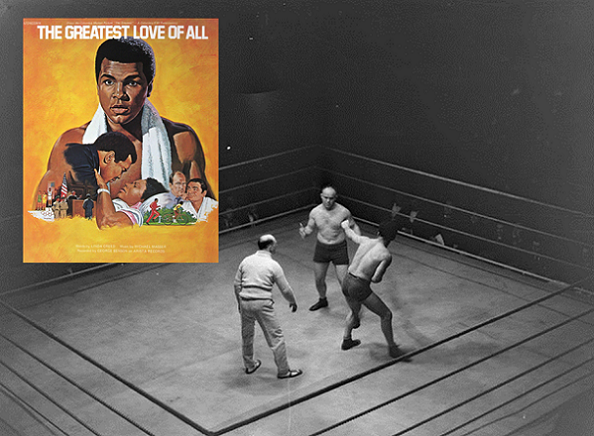
Statistics suggest adults are now less likely to undertake these roles. A comparison of registered Rugby Union player numbers (for example) relative to New Zealand’s total population shows that while the proportion playing the game has not materially changed over the past century, the demographic composition of those playing the game has substantially altered. A 1924 Census of Sport revealed that 30% of all registered Rugby Union players at that time were at school, compared to over 80% of all registered players today.
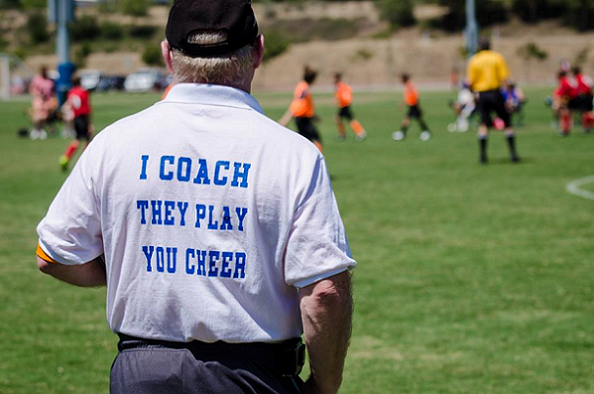
Across contemporary New Zealand, it would appear that many clubs increasingly survive largely based on their junior registrations, rather than their adult financial members, with the data perhaps inferring that progressively fewer New Zealanders see the benefits of keeping involved in organised sport beyond their childhood years. This has an inevitable flow-on effect to the long-term viability of organised sport in the community, which has long been the back-bone of many of New Zealand’s traditional sports. Clubs are the source of volunteer Coaches, Officials and Administrators. Can New Zealand sport survive without them?
From The Archives ...
LOCAL AND GENERAL
NEW ZEALAND HERALD, VOLUME LXXII, ISSUE 22259, 6 NOVEMBER 1935
“As evidence of the interest of New Zealand youth in sport, an incident in a Sunday school class at Palmerston North is worth recording, states the Manawatu Evening Standard. The teacher had read an extract from one of Robert Browning's works, following which was the query:—"Now children, who was Robert Browning?" "I know," said a small boy. "He's a wrestler, and wrestles here this week under the name of Lofty Blomfield."”
Meynell “Lofty” Blomfield (aka Walter Browning), was one of New Zealand’s sporting personalities of the 1930s. A former Poverty Bay rugby representative, associated with the Celtic Club and winner of the Barry Cup against Wairoa, Blomfield was a wrestler who achieved notable success both as an amateur and a professional.
While a Police Constable based in Auckland, he became a member of the local Wrestling Association, winning the New Zealand Amateur Heavyweight title in 1931 and becoming famous for creating a wrestling hold which became known as the “Octopus Clamp”. During the Great War, Blomfield went to the Middle East as a physical training instructor, but was sent home on account of varicose veins. Blomfield retired from all wrestling in 1949 after 20 years in the ring (at the age of 43), to become Manager of the Whangarei Hotel. In 1950, he famously rescued a crippled woman (Mrs C S Stevens), from a burning farmhouse at Maungatapere.
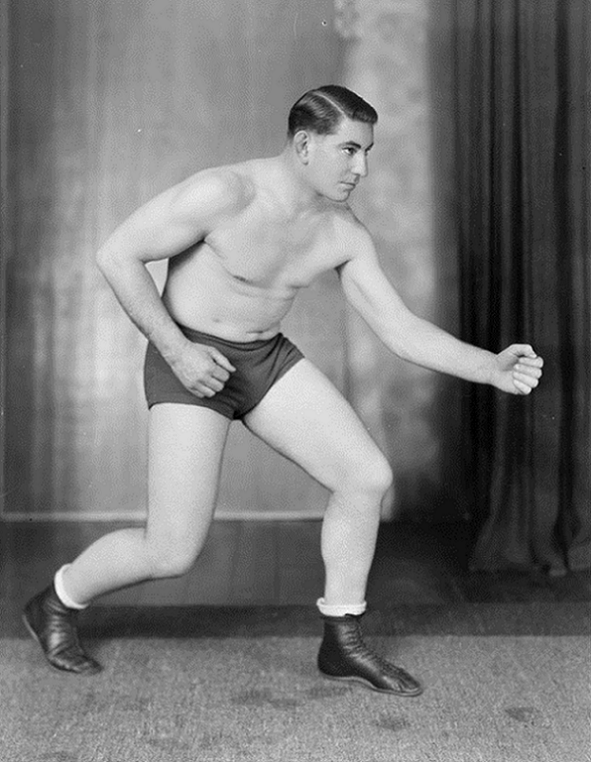
("Lofty" Blomfield, New Zealand Amateur Heavyweight Wrestling Champion)
The New Zealand Wrestling Association was established in 1905, with a membership of 50. By 1926, the Association had increased to 60 members, with 85 members by the end of that decade. In the 1930’s it was reported that “amateur wrestling clubs are springing up like mushrooms all over the Dominion”, with the "New Zealand Amateur Wrestling Championships" becoming a highlight of the national sporting calendar. However, increasing professionalism of bouts created an increasing rift between the sports’ commercial and community promoters and resulted in diminishing amateur participation.
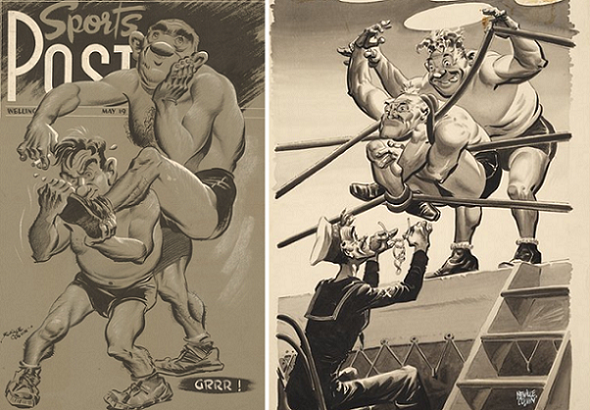
(In the middle of last century, the sport of wrestling attracted considerable public support)
From its heyday last century, today the sports’ governing body the New Zealand Olympic Wrestling Union (formed in 1965), lists fewer than 20 clubs affiliated clubs around New Zealand, with the sport now completely absent in some of its former provincial strongholds.
The Final Word ...
"A great deal of talent is lost to the world for want of a little courage."
(Sydney Smith)